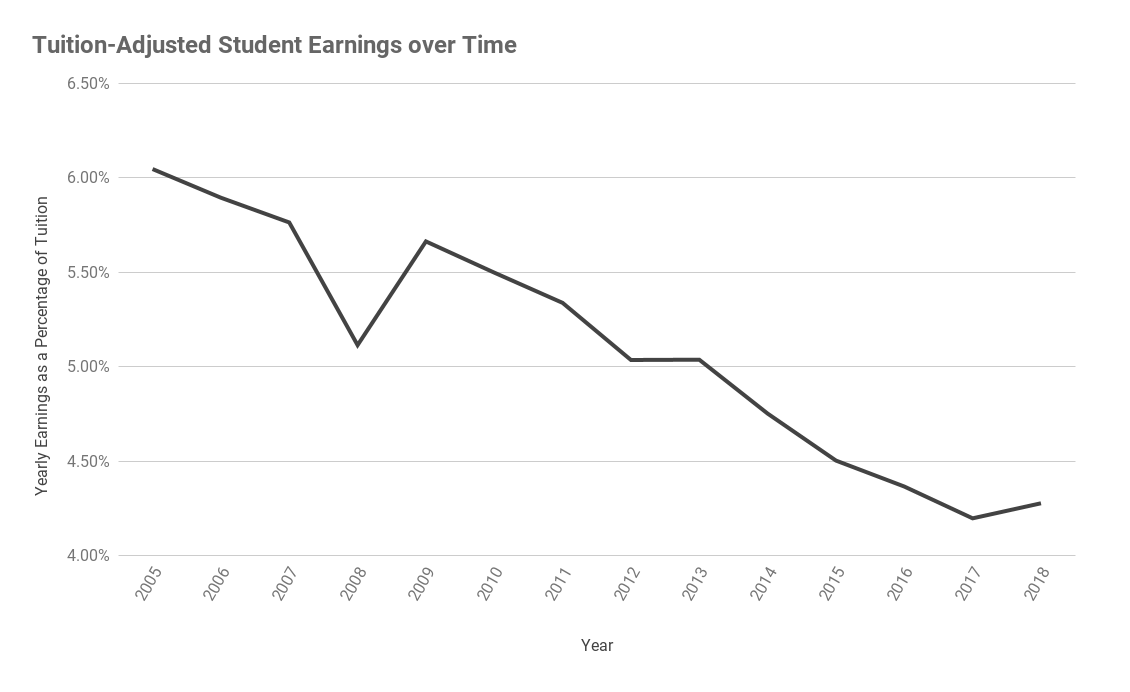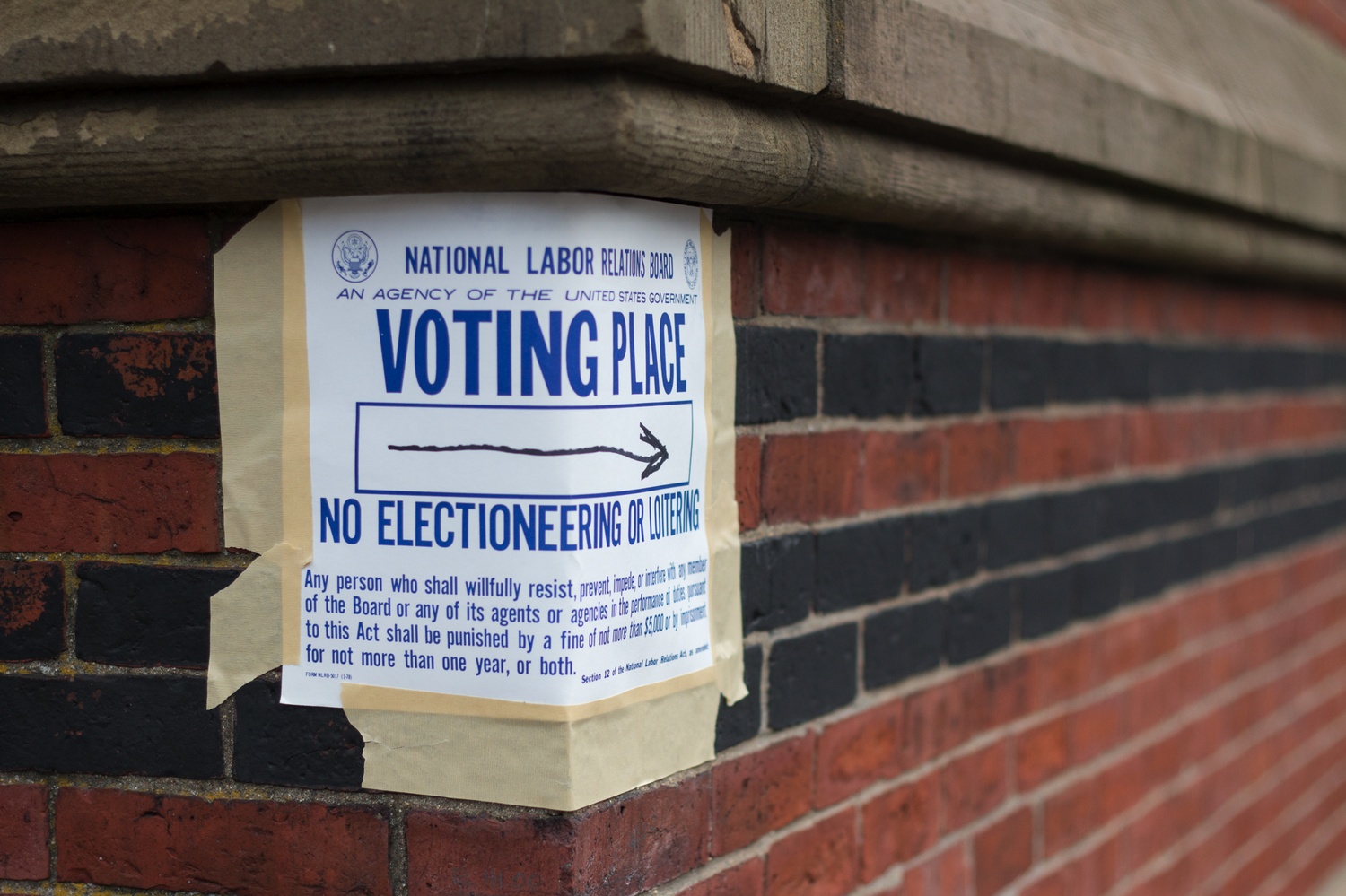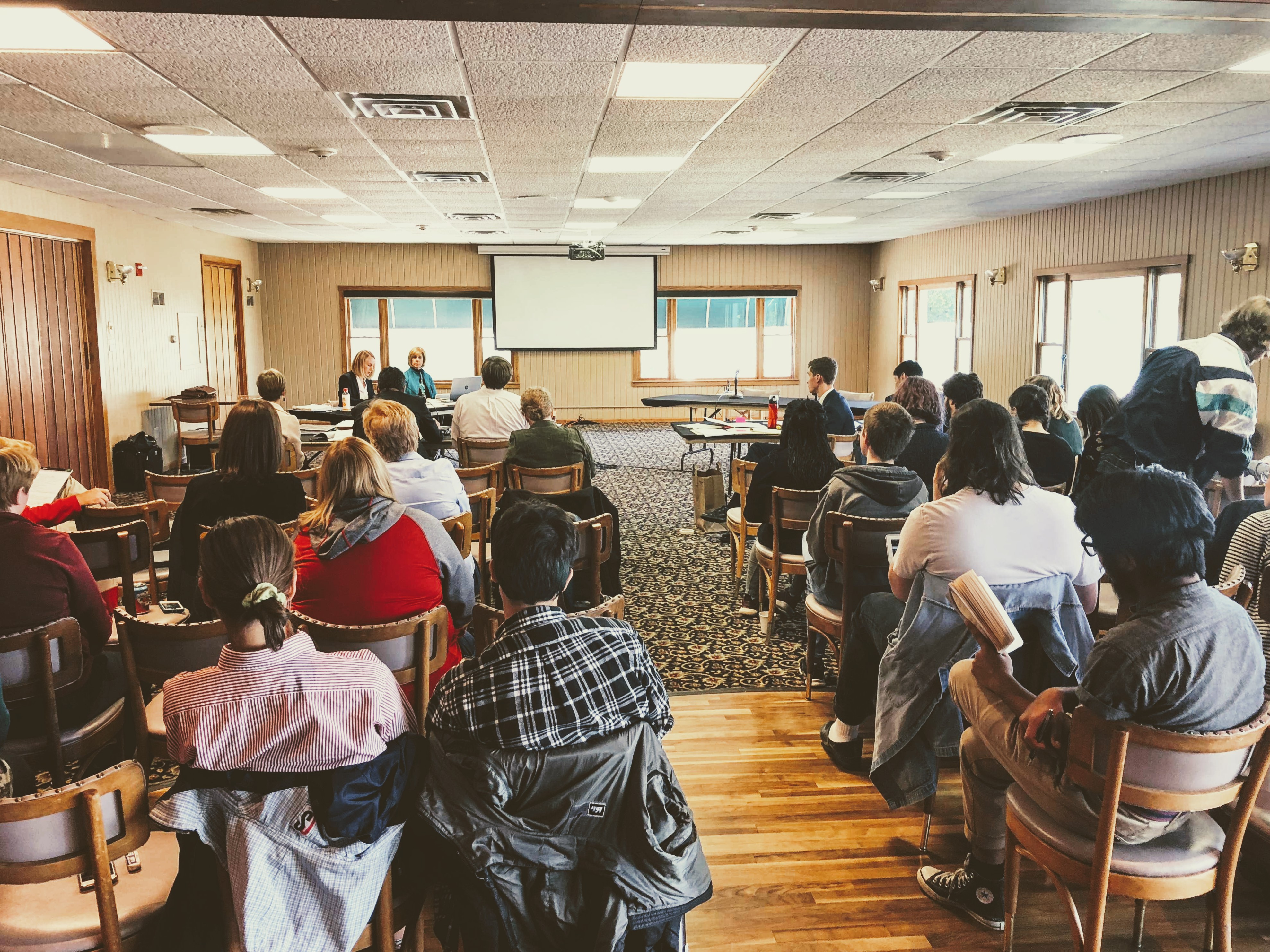Introduction
As Grinnellians, we all deeply cherish Grinnell College’s commitment to academic excellence, educational equity, social responsibility, and self-governance. Despite claims by Grinnell College and its attorneys, UGSDW expansion will not harm the core mission of Grinnell College. In fact, we seek to build a lasting structure for mutual cooperation and accountability between all student workers and the College, and we will continue to realize and effectuate Grinnell’s core mission.
Advocacy always has a deeply emotional dimension. We are profoundly shocked and disappointed by the College’s decision to spend its precious institutional resources aggressively crusading against our efforts with the aid of high-powered law firms which specialize in union busting.1 But it is often easy to get caught up in the emotions of the moment. Grinnellians ask hard questions and question easy answers. In this spirit, we lay out the following facts:
Due to inflation and tuition increases, real wages for student workers have been consistently decreasing for almost a decade.
Most student workers rely on their campus jobs to finance their Grinnell education. In 2008, if a student worked a job that paid the campus minimum wage for 8 hours a week, their annual income from campus employment would equal roughly 4.4 percent of the comprehensive fee.2 Today, income from the same job would only equal roughly 3.1 percent of the comprehensive fee—a 30% decrease.3 In addition, the campus minimum wage in 2008 is worth more than $8.50 per hour in 2018 dollars, compared to the current campus minimum wage of $8.00 per hour.4 In essence, the college has been saving money (in real terms) on student wages each year. It is disingenuous for it to claim that it could not afford a higher (real) level of wages.

Grinnell College has the financial capacity to pay student workers a fair wage.
President Kington frequently claims that Grinnell College could not afford UGSDW expansion because the College “is a non-profit” or “does not turn a profit,” while Grinnell College has achieved consistent financial success. Over the past 10 years, Grinnell College has realized an average net revenue of over $20 million.5 For fiscal year (“FY”) 2018, gifts and donations totaled $17.1 million, “easily” the highest since FY 2010.6 Student wages account for less than 1.5 percent of Grinnell’s total operating costs, and wage increases UGSDW are prepared to negotiate would cost the College a small percentage on top of that 1.5 percent.7 8 There have certainly been times when the college faced harder budgetary constraints. In FY 2009 and FY 2016, Grinnell College posted net losses of around $152 million and $15 million, respectively,9 but in 2008 (during FY 2009), because of an increase in the federal minimum wage, the College raised the campus minimum wage from $6.8 per hour to $7.25 per hour.10 11 Despite these challenges, the College was able to maintain spending on strategic priorities, such as financial aid and campus employment opportunities.12 The notion that UGSDW expansion would limit resources for these priorities is factually questionable; the fact that these arguments are made by lawyers whose hourly rates may well exceed $1,000 is especially troubling.13
Finally, the claim that the College will cut financial aid and job opportunities in response to UGSDW expansion is irresponsible, retaliatory, and possibly illegal. Grinnell admits students on a need-blind basis, and meets 100% of demonstrated financial need. These policies cannot be changed by administrative fiat; they are commitments made by the Board of Trustees, and renewed every three years. Grinnell’s administration simply could not unilaterally cut financial aid in order to “balance the books.” Furthermore, any retaliatory cuts to financial aid (or retaliation in any form) as a result of student unionization is a violation of federal labor law.14
We have always actively emphasized our role as students of Grinnell College.
However, Grinnell College has charged that UGSDW expansion would “impede learning” by “fundamentally changing the educational relationship between the College, faculty, and students.”15 This simply has not been the case, during the over two years that UGSDW has represented student workers in Dining Services. In fact, UGSDW’s current Dining contract reads, in part, “The College and Union mutually agree and acknowledge that the employees covered by this Agreement are, first and foremost, students” (emphasis added).16 Student workers having a powerful say in our workplace by no means hinders the rigorous academics Grinnell is renowned for.
Research finds no evidence that unions of student workers harm education.
In fact, a random sample of liberal arts and sciences professors from five universities “generally do not believe that their relationships with students have suffered because of collective bargaining.”17 Similarly, a 2013 study, examining student-faculty relationships, academic freedom, and economic well-being across unionized and non-unionized campuses, found that unionization does not interfere with faculty-student relationships or harm the education of students.18

A union of student workers can facilitate academic learning.
The same 2013 study discussed above shows that student workers in unions report a higher level of personal and professional support.19 Furthermore, regardless of potential educational benefits of campus employment, working too much hurts the learning experience of student workers. Around 1250 of Grinnell’s 1700 students work each year.20 Many of our members work 20 hours a week to be able to afford tuition, fees, and living expenses—time they cannot spend on academics and extracurriculars.
Better working conditions are better learning conditions.
Like any life experience, campus employment involves an educational aspect, but student workers cannot fully realize these educational benefits if they are underpaid, if they fear discrimination, if they fear inadvertently hurting themselves, and if they fear being fired without just cause. UGSDW embraces the educational value of campus employment, as well as the flexibility of Grinnell College in creating and improving job opportunities locally, but we maintain that everyone deserves a fair wage, that everyone deserves a fair discipline policy, that everyone deserves dignity at work, and that everyone deserves a say in their own workplace.
Grinnell College has erroneously claimed that UGSDW expansion would “require” them to give confidential information of student workers protected by FERPA and other higher education laws to UGSDW.21 Tellingly, in good faith we have approached the College administration with concrete proposals to guarantee student workers’ privacy rights, only to be stonewalled and ridiculed by them.22 23 24
Indeed, effective advocacy requires sufficient evidence and information. The National Labor Relations Act does require employers to provide unions with information relevant to collective bargaining. However, the vast majority of information UGSDW needs, such as how many student workers are in each pay category, is not individually identifiable and thus not confidential. In the rare cases where individual information is necessary, such as wrongful termination, UGSDW will never pursue any individual information without the affirmative consent from the student worker in question. Student workers own their privacy rights; Grinnell College does not. Privacy rights should not be weaponized as an excuse to deny student workers their rights to organize in unions.

Conclusion
When pressed to explain how exactly UGSDW expansion would harm Grinnell’s core mission, President Kington demurred that “It’s sort of circular—It’s part of our core mission because it’s part of the core mission.” After two days of testimony by administrators and students, including a 2-hour presentation by President Kington himself, the Regional Director of NLRB concluded:
The Employer’s contentions about how collective bargaining would affect financial aid, limit the number of jobs available to students, interfere with the ability to hire qualified students, negatively impact the egalitarian culture of the college, and otherwise undermine the college’s mission are speculative and not based on any concrete evidence.25
Faced with this unequivocal finding, Grinnell College doubled down on these assertions and insisted on appealing the decision to the National Labor Board, stacked with anti-worker appointees of the Trump administration. This insensible decision by Grinnell College risks the rights of not only more than a thousand student workers in Grinnell but also hundreds of thousands of student workers cross the nation to join together to advocate for themselves in unions.26
As one commentator on student worker struggles noted, “It’s telling that professional academics, committed to ruthless empiricism and logic, are reduced to mystical, even spiritual platitudes when pressed to explain their opposition to [student] unionism.”27 Since October, UGSDW has demanded to meet the senior leadership of Grinnell College so as to reach a swift and fair resolution, but the administration refuses. To this day, UGSDW remains willing to an open dialogue and a compromise with the College, and our fight for all working students carries on.
# learn more about the expansion campaign, including the potential “partial expansion” compromise
Endnotes
-
Grinnell College has hired Nyemaster Goode PC and Proskauer Rose LLP, as shown on the official NLRB case page ↩
-
Assuming there are 32 weeks in an academic year. The campus minimum wage in 2008 was $7.25 per hour. The comprehensive fee for academic year 2008-2009 was $42,422. ↩
-
Assuming there are 32 weeks in an academic year. The campus minimum wage in 2018 is $8 per hour. The comprehensive fee for academic year 2018-2019 is $65,202. ↩
-
Calculated using the US Inflation Calculator ↩
-
UGSDW Analysis of Trustees of Grinnell College Form 990s (Annual Tax Returns) from FY 2007 to FY 2017. Form 990s are available at: https://www.grinnell.edu/about/offices-services/treasurer/accounting/resources. ↩
-
Grinnell College. (2018). Grinnell College Philanthropy Continues on the Upswing. Retrieved from https://alumni.grinnell.edu/news/fy-2018-success. ↩
-
Kington, R. S. (2018). Grinnell College Mission and Student Employment Context. Retrieved from https://www.grinnell.edu/sites/default/files/docs/2018-11/Grinnell%20Mission%20Employment%20Context%20Final%5B2%5D.pdf. ↩
-
Trustees of Grinnell College. (2017). FY 2017 Financial Report. Retrieved from https://www.grinnell.edu/sites/default/files/documents/Grinnell%20College%20-%20Final%20Financial%20Statements%20-%20Short.pdf. ↩
-
UGSDW Analysis of Trustees of Grinnell College Form 990s. ↩
-
United States Department of Labor. (2008). History of Federal Minimum Wage Rates Under the Fair Labor Standards Act, 1938 - 2009. Retrieved from https://www.dol.gov/whd/minwage/chart.htm. ↩
-
Grinnell College. (2007, May. 10). Employment. Retrieved from https://web.archive.org/web/20080503130809/http://www.grinnell.edu:80/offices/financialaid/typesofaid/employment/. ↩
-
UGSDW Analysis of Trustees of Grinnell College Audited Financial Reports FY 2009, FY 2010, FY 2016, and FY 2017. Audited Financial Reports are available at: https://www.grinnell.edu/about/offices-services/treasurer/accounting/documents. ↩
-
Neil, M. (2018). Top Partner Billing Rates at BigLaw Firms Approach $1,500 Per Hour. Retrieved from http://www.abajournal.com/news/article/top_partner_billing_rates_at_biglaw_firms_nudge_1500_per_hour. ↩
-
Under the National Labor Relations Act, it is illegal to threaten employees with adverse actions if they choose a union to represent them. See 29 U.S.C. § 158. ↩
-
Grinnell College. (2018, Nov. 19). Special Campus Memo: Updates on Student Unionization. Retrieved from https://www.grinnell.edu/news/special-campus-memo-update-student-unionization. ↩
-
Collective Bargaining Agreement between Grinnell College and Union of Grinnell Student Dining Workers: September 16, 2017 - June 30, 2019. Retrieved from https://www.ugsdw.org/members/contract/. ↩
-
Hewitt, G. J. (2000). Graduate student employee collective bargaining and the educational relationship between faculty and graduate students. Journal of Collective Negotiations in the Public Sector, 29(2), 153-166. ↩
-
Rogers, S., Eaton, A. E., & Voos, P. B. (2013). Effects of unionization on graduate student employees: Faculty-Student relations, academic freedom, and pay. Industrial and Labor Relations Review, 66(2), 487-510. ↩
-
Ibid. ↩
-
Kington, R. S. (2018). ↩
-
Grinnell College. (2018, Nov. 19). Special Campus Memo: Updates on Student Unionization. ↩
-
Schneyer, J. (2018, Nov. 7). UGSDW Response to College Counsel. Retrieved from https://www.grinnell.edu/campus-life/conversations/unionization/response-counsel. ↩
-
Schneyer, J. (2018, Nov. 13). UGSDW Response to Email from College Counsel. Retrieved from https://www.grinnell.edu/sites/default/files/docs/2018-11/UGSDW%20Response%2011-13-2018.pdf. ↩
-
Grinnell College. (2018). College Explains its Position on Student Union Expansion. Retrieved from https://www.grinnell.edu/campus-life/conversations/unionization. ↩
-
Decision and Direction of Election. (2018, Nov. 5). Trustees of Grinnell College 18-RC-228797. Retrieved from https://www.nlrb.gov/case/18-RC-228797. ↩
-
Wallender, A., & Iafolla, R. (2018, Nov. 21). Liberal arts students’ union bid threatens Obama-era policy. Bloomberg Law. Retrieved from https://news.bloomberglaw.com/daily-labor-report/liberal-arts-students-union-bid-threatens-obama-era-policy. ↩
-
Oppenheimer, M. (2016, Aug. 31). Graduate students, the laborers of academia. The New Yorker. Retrieved from https://www.newyorker.com/business/currency/graduate-students-the-laborers-of-academia. ↩
